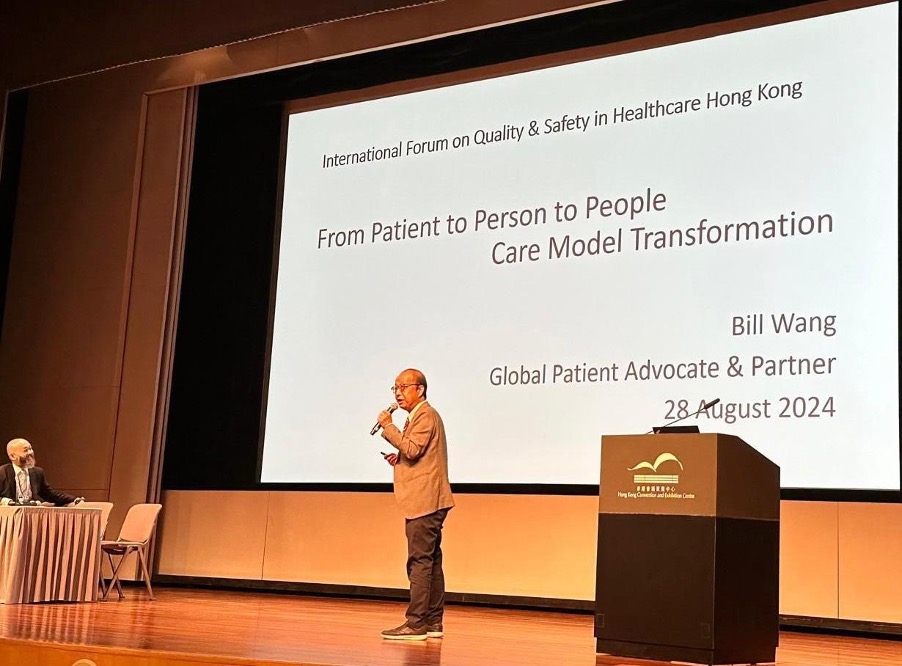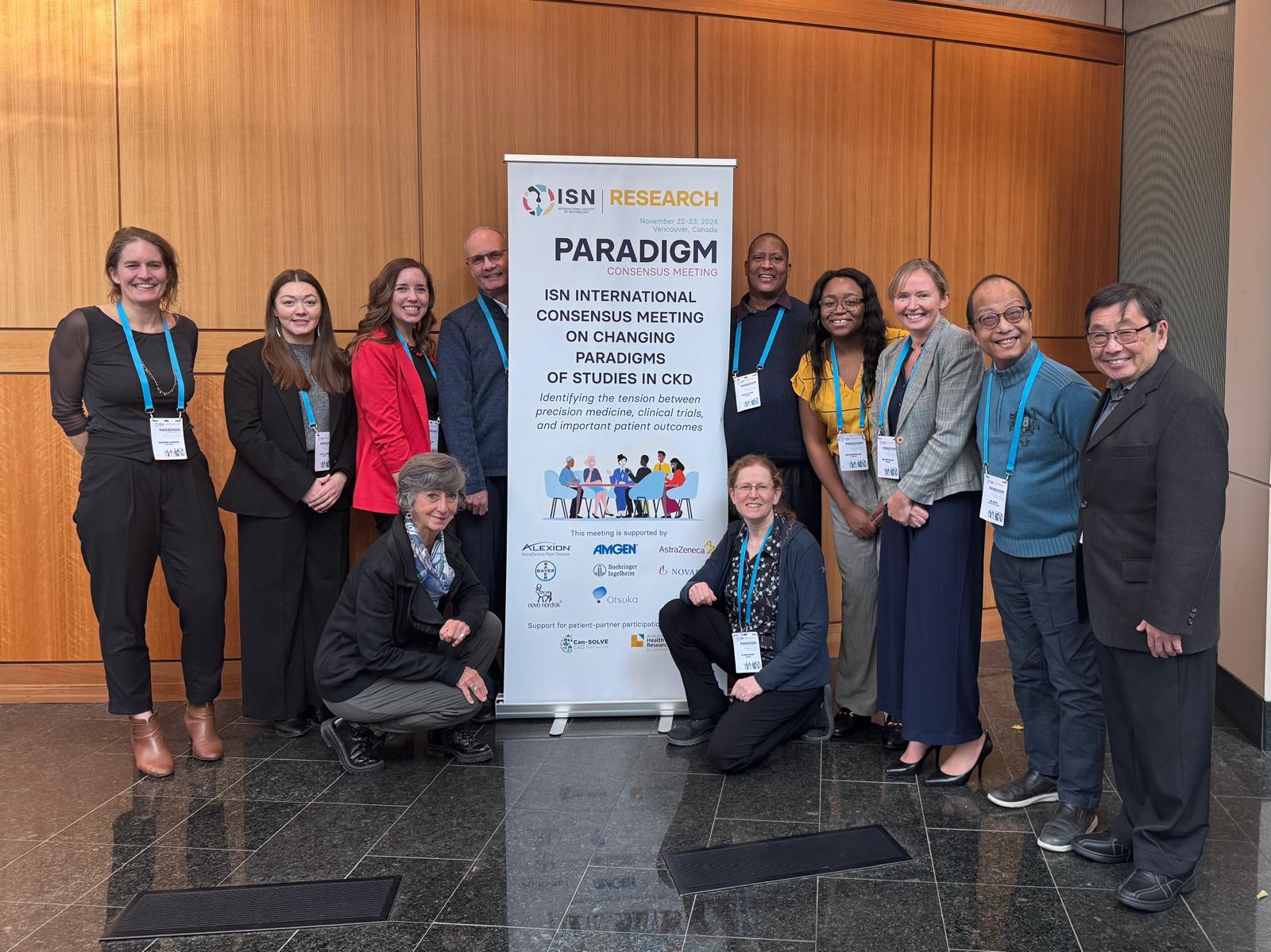HRIDAY
Leading an equitable response to NCDs in India
Meaningful Engagement of People with Lived Experiences
29 Jan 2026
Bill Wang | 30 Oct 2025
This article is part of the Lived Experience Perspectives Series, which features firsthand accounts from individuals living with noncommunicable diseases, mental health, or neurological conditions. Each piece highlights one of the key advocacy messages from the WHO Symposium on the Meaningful Engagement of People Living with NCDs, Mental Health, and Neurological Conditions , contributing to global advocacy efforts in the lead-up to the Fourth High-Level Meeting of the UN General Assembly on NCDs and Mental Health in September 2025.
This article highlights Key Advocacy Message 4.2:
Develop guidance, toolkits, and technical resources on the implementation of meaningful engagement for policymakers and other stakeholders.
I remember the day of a whirlwind of emotions when I grappled with the diagnosis of Autosomal Dominant Polycystic Kidney Disease (ADPKD) – a genetic condition where fluid-filled cysts progressively destroy kidney function and cause complications to other organs and tissues. I was stepping into a painful family legacy as the same disease had claimed my father’s life when my sister and I were teenagers. My sister, too, was later diagnosed with the condition that eventually led to her kidneys failing.
My initial denial soon became impossible to sustain. Beyond common kidney disease symptoms, countless cysts burdened my kidneys and liver, growing daily and causing pain from periodical ruptures. Worse, they pressed on my lungs and stomach, hindering eating and breathing, which led to malnutrition and frailty. My abdomen became unbearably distended while the rest of body wasted away, requiring painstakingly tailored business attire and cushions to protect my bones (with thinning muscles) from hard seats. The uncertainty over disease progression cast a long psychological shadow – a profound isolation that touched every part of my being. To this date, the disease remains incurable - and back then, treatment options and peer support were even scarcer. Eventually, following my late father and my sister, my kidneys failed.
I was in my personal and professional prime – with a loving wife and a thriving career as a lawyer. Driven to keep an identity beyond one of illness, I made my first major act of defiance against standard procedural recommendation: For haemodialysis, I chose a surgically inserted catheter for blood access over the recommended arteriovenous fistula. This was considered a suboptimal choice medically, but it was optimal for my life. I preserved the full mobility of my hands and arms which was essential to continue my practice as a lawyer from the dialysis chair – chairing calls, negotiating terms, and typing contracts.
But my defiance for identity and dignity came at a cost: complex wound care, plastic-wrapped showers, and the unspoken guilt of deviating from the gold standard. That struggle taught me a crucial lesson: To survive a system not specially built for everyone, you may just have to hack it – often alone – own the risks and gain the expertise that work for you and your peers. Years later, I learned this defiance had a name: “self-advocacy.” To me, this is beyond a fancy term – it’s validation. And collectively, they form critical foundation of lived experience and life participation advocacy that extends far beyond individual struggles.

For five hours, twice a week, my mind was so occupied with legal matters that the dialysis sessions became a background process. Call it mentally therapeutic! But as my conditions progressed, another harsh truth crystallized: our healthcare systems were masterful at registering biological markers, yet profoundly inept at recognizing and integrating lived experience as clinical competence.
My suffering was mostly expressed as technical data to be monitored or treated, while my hard-won insights remained anecdotes at best. My battle was no longer solely against organ failure, but also against a system that marginalizes the very knowledge born from enduring disease. This was no fault of my excellent care teams, but rather a result of major systemic deficiencies:
The root cause for the deficiencies is stark: healthcare systems largely “charitize” lived experience. They treat it as a goodwill gesture, a freebie to be patronized, rather than the essential expertise it holds. For our participation, some of us are handed gift cards – a paltry token – while industry consultants earn millions shaping the very guidelines that dictate our care and survival. This isn't engagement; it's extraction. It undervalues the profound expertise forged in the fires of illness and recovery. We don’t need performative inclusion; we need a fundamental shift towards recognizing lived experience as a distinct discipline requiring training, accreditation, and fair compensation.
Today, as a retired lawyer and a double-transplant survivor of past seven plus years, I wield my expertise without apology. My mission: To slash through the pervasive tokenism at healthcare decision-making tables and demand systemic investment in lived experience as a vital, accredited expertise. When formally integrated, lived experience transforms outcomes. My work on several projects demonstrate this power:
Validating what matters to patients: Existing clinical metrics often ignored a person's ability to live a full life. In a ground-breaking study, we addressed how to measure “life participation” for people with chronic kidney disease. Inspired by lived experiences, we defined "life participation" as the ability to engage in leisure, family, work, and social activities, and co-created the measurement tool with 130 patients, caregivers, and clinicians across 18 countries, ensuring cultural relevance and sensitivity. The result is the first internationally validated core outcome measure specifically for life participation in populations with chronical kidney disease. This is lived experience in action: transforming patient priorities into concrete, measurable clinical benchmarks.

This type of work represents a fundamental paradigm shift in how kidney disease studies are conceived. By contributing to international consensus meetings, I have advocated for this exact change: moving beyond single biomarkers to include patient-centered outcomes like life participation, and fostering innovation in trial design through genuine collaboration. My journey from the dialysis chair to the research table proves that lived experience is the critical expertise needed to ensure clinical research is relevant, equitable, and truly impactful.
My current transplanted organs are a leased lifeline, with an estimated 4,000 days before they age and fail. This urgency fuels my aspiration: healthcare systems must create accredited career paths for lived experience experts.
This is an appeal for investment in our capacity in co-designing guidelines, toolkits and technical resources. The return should be measured not just in quantitative terms, but qualitative ones such as lives improved, trust rebuilt, and care transformed. This requires a measurable commitment, trackable through key performance indicators (KPIs):
Our lived experience, honed by adversity and resilience, represents a unique and irreplaceable form of expertise. It is the very immune system that modern health policy lacks – the system's ability to recognize its own flaws, adapt from real-world feedback, and ultimately, heal itself.
As a reminder, WHO once declared “people have the right and duty to participate individually and collectively in the planning and implementation of their health care.” And it further defines “Meaningful Engagement” as “the respectful, dignified, equitable inclusion of individuals with lived experience in processes where power is transferred to people, valuing their expertise to improve health outcomes”.
Professionalizing lived experience isn't charity; it's the strategic, ethical imperative for building a healthcare system that is truly effective, equitable, and human.

Bill Wang is a member and Immediate Past Chair of the International Society of Nephrology Patient Liaison Advisory Group, a member of WHO World Kidney Day Steering Committee and Vice Chair of Hong Kong Kidney Foundation. He has authored numerous published articles on lived experience engagement including the SONG-LP core outcome measure for life participation and Changing paradigms of studies in kidney diseases. As a lawyer and double-transplant recipient, he advocates for building a talent pipeline for lived experience experts, believing that "lived experience without infrastructure is a sword without an edge."